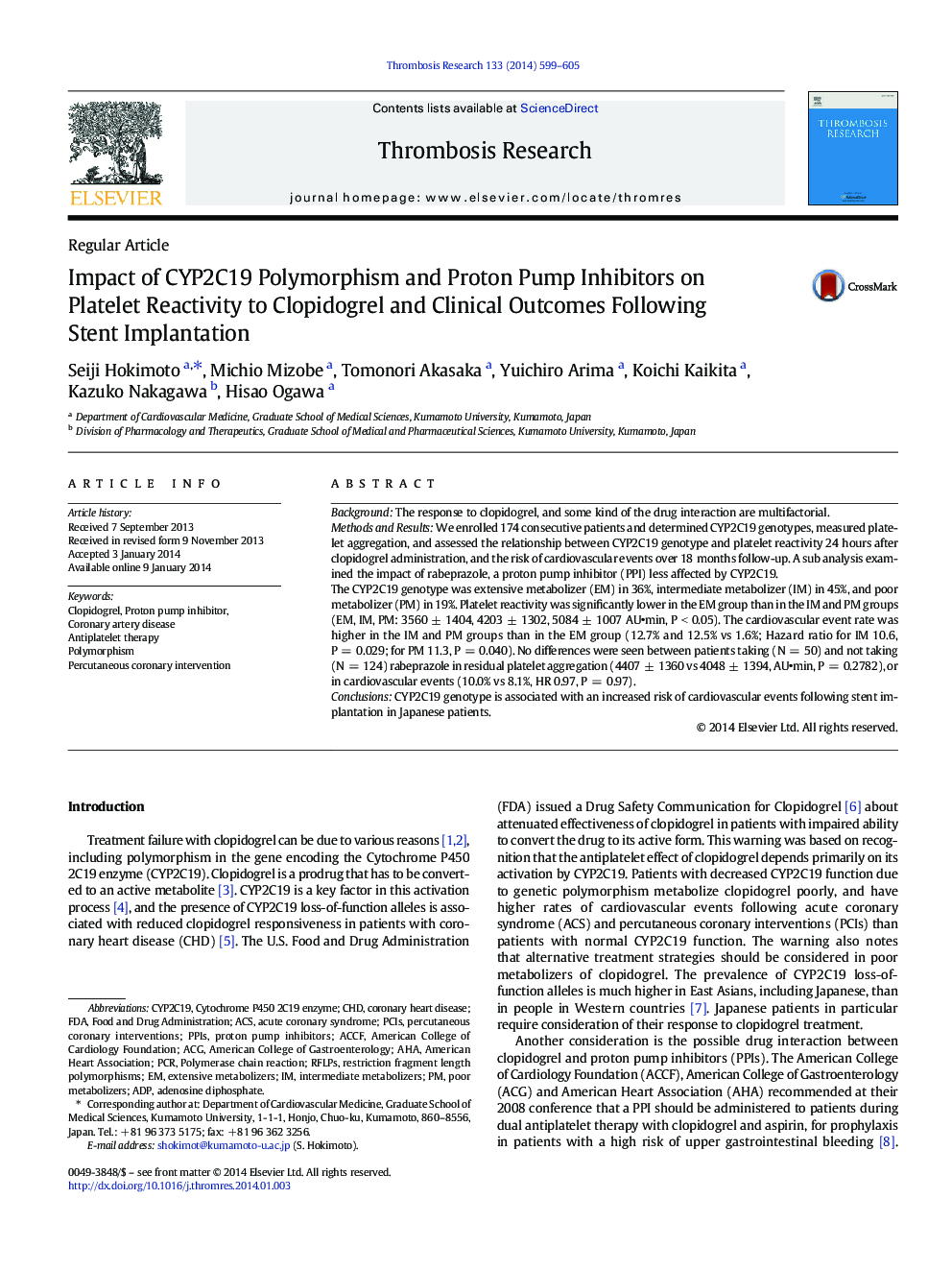| Article ID | Journal | Published Year | Pages | File Type |
|---|---|---|---|---|
| 6001394 | Thrombosis Research | 2014 | 7 Pages |
BackgroundThe response to clopidogrel, and some kind of the drug interaction are multifactorial.Methods and ResultsWe enrolled 174 consecutive patients and determined CYP2C19 genotypes, measured platelet aggregation, and assessed the relationship between CYP2C19 genotype and platelet reactivity 24 hours after clopidogrel administration, and the risk of cardiovascular events over 18 months follow-up. A sub analysis examined the impact of rabeprazole, a proton pump inhibitor (PPI) less affected by CYP2C19.The CYP2C19 genotype was extensive metabolizer (EM) in 36%, intermediate metabolizer (IM) in 45%, and poor metabolizer (PM) in 19%. Platelet reactivity was significantly lower in the EM group than in the IM and PM groups (EM, IM, PM: 3560 ± 1404, 4203 ± 1302, 5084 ± 1007 AUâ¢min, P < 0.05). The cardiovascular event rate was higher in the IM and PM groups than in the EM group (12.7% and 12.5% vs 1.6%; Hazard ratio for IM 10.6, P = 0.029; for PM 11.3, P = 0.040). No differences were seen between patients taking (N = 50) and not taking (N = 124) rabeprazole in residual platelet aggregation (4407 ± 1360 vs 4048 ± 1394, AUâ¢min, P = 0.2782), or in cardiovascular events (10.0% vs 8.1%, HR 0.97, P = 0.97).ConclusionsCYP2C19 genotype is associated with an increased risk of cardiovascular events following stent implantation in Japanese patients.
